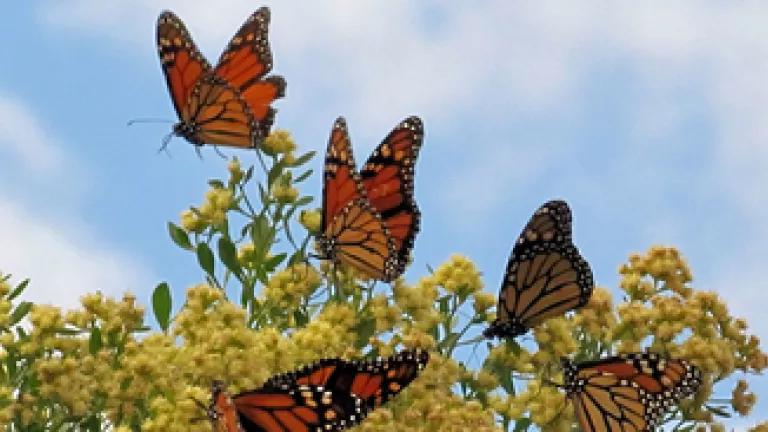Let's not shoot the Monarch messenger: Butterflies (and critters) of all kinds need our help

A recent opinion piece by Daniel Rubinoff argued that efforts to save the declining monarch butterfly in the US are misplaced. Chief among Rubinoff's arguments is that other species of butterflies, moths and spiders are in more critical condition and deserve as much attention. Certainly, no one is suggesting that other species should be overlooked. Indeed, let's not lose sight of the fact that many of these "less well-known insects," as Rubinoff puts it, are facing threats from the same common denominator: habitat loss and pesticide use. Addressing these issues on a broad, national scale—as is being proposed for the monarch butterfly—will bring benefits to many critters—even those we may not know as well.
In the US right now pollinators of all kinds are facing serious problems. Native prairies that were once the home for many species have been converted into large agricultural monocultures. In many areas the broad scale use of the herbicide glyphosate—also known as Roundup—in connection with genetically modified Roundup ready crops has effectively eliminated milkweed, a native wildflower that the monarch butterfly depends on. Additionally, large swaths of crops are treated with a class of pesticides called neonicitinoids which are known to severely impair bees and other beneficial insects. America's heartland has turned into a deathtrap for critters of all kinds.
Monarch butterflies are the most recognized species of butterfly in the US. They put a face (or rather recognizable wings) on the problem of species decline. Having plunged 90% in the past 15 years the migrating population that spends its winters in Mexico is now perilously small. Previous cold snaps have killed off more butterflies than currently exist suggesting that even at 50 million butterflies we are one bad weather event away from losing the entire migrating population.
But even if you buy Rubinoff's premise that the monarch migration in North America is not in danger of being lost, do we really want to send a message that it's ok if they dwindle down to numbers so small that no one in the future will remember the scores of butterflies that used to grace their backyards each summer? Let's not shoot the most inspiring of insect messengers whose decline has finally woken up government officials—from three nations, no less—to the fact that we are managing our world towards extinction.
Instead, let's embrace the fact that our government has just acknowledged that a monumental effort is needed to combat the damage that decades of poor land use practices have wreaked on our natural world. Let's delight in the fact that people from all over want to do whatever it takes to make sure monarch butterflies visit their gardens. And let's celebrate the fact that the USFWS has dedicated $3.2 million dollars towards an effort that will help improve habitat not just for monarchs but for many other "less well-known insects." Saving the monarch brings benefits to us all.

